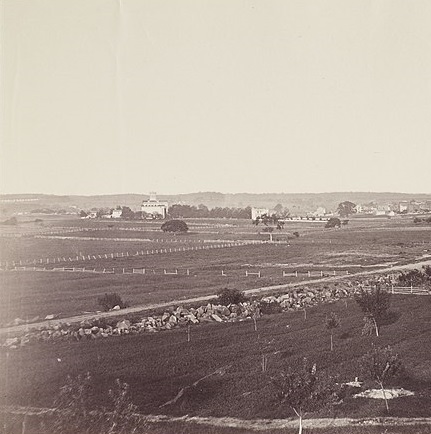
by Richard Subber | Jan 25, 2024 | Book reviews, Books, Poetry
…less than meets the eye…
Book review:
The Rubayyat of Omar Khayyam
Edward Fitzgerald, trans.
Manoocher Aryanpur, intro.
Joseph Isom, illus.
Kansas City, MO: Hallmark Cards, Inc. 1967
59 pages
Overall, Omar Khayyam’s classic doesn’t appeal to my modern ear. It’s too long, and disorganized.
Having said that, I’m happy to acknowledge that a reader can find poetic beauty and exotic imagery seeded throughout the poem, e.g. “…There was the Door to which I found no Key/There was the Veil through which I could not see:/Some little talk awhile of Me and Thee/There was—and then no more of Thee and Me.” (Stanza XXXIII)
No one will confuse the Rubayyat with Mary Oliver’s work.
* * * * * *
Book review. Copyright © Richard Carl Subber 2023 All rights reserved.
Home Team: Poems About Baseball (book review)
Edwin Romond hits another homer…
–
Seeing far: Selected poems with 47 free verse and haiku poems,
and the rest of my poetry books are for sale on Amazon (paperback and Kindle)
and free in Kindle Unlimited, search Amazon for “Richard Carl Subber”
* * * * * *

by Richard Subber | Jan 21, 2024 | American history, Book reviews, Books, Democracy, History, Politics, Power and inequality
Popular history: not exactly true…
Book review:
Origins of Modern America, 1860-1900
Allen Weinstein, ed.
Vol. 4 of Random House Readings in American History
New York: Random House, 1970
216 pages
Contains 10 essay-length segments addressing three themes: Civil War and Its
Aftermath, The New Society, and The Approach of Empire
The four decades that started with the American Civil War were a continuing tempest of change in every aspect of American life.
Origins of Modern America, 1860-1900 is a compact collection of 10 essays that will open your eyes to the significant currents and eddies in the great waves of transformation that marked the end of America’s first complete century. A lot of it wasn’t pretty.
Authors like Alfred D. Chandler Jr. and Stephan Thernstrom take a deep look at many iconic elements in the periods of American history that traditionally have been labeled as the Civil War, Reconstruction, and the Gilded Age. These essays were written in the middle of the 20th century, and these historians offer careful looks at many widely-held truisms that are not, in fact, wholly or even substantially true.
For example, Thernstrom examines “Urbanization, Migration, and Social Mobility in Late Nineteenth-Century America.” He gives evidence of several nuances and some inaccuracies in the concept of the development of a beleaguered, largely immigrant working class as industrialization burgeoned in the United States.
A large component of the working class were young American boys and girls who moved east to get off their parents’ failing farms. The political empowerment of the working class was muted and delayed in America (in contrast to the more volatile emergence of socialist activism in Europe) because so many of the blue collar workers were persistently transient—they didn’t stay in one job or place long enough to develop coherent political consciousness and clout.
Thernstrom starkly notes that “Lowell [a factory town] was terrible,” but for many European immigrants and Kansas farm boys the factory job and the tenement life were an improvement in their prospects for a tolerable life.
Organizing for worker’s rights was a tough proposition, and the wealthy factory owners and industry barons used their dominant power to resist it:
“In 1875, the Superintendent of one of Andrew Carnegie’s steel mills summed up his experience this way: ‘We must steer clear as far as we can of Englishmen, who are great sticklers for high wages, small production and strikes. My experience has shown that Germans and Irish, Swedes and what I denominate “Buckwheats”—young American country boys, judiciously mixed, make the most honest and tractable force you can find.’ ” (p. 149)
Indeed, there are many varieties of the American dream, all depending on your point of view.
Origins of Modern America offers good learning in compact, complementary, and compelling essays.
It will almost certainly change your mind about some key elements of American history
that you’ve always known to be true…
* * * * * *
Book review. Copyright © Richard Carl Subber 2024 All rights reserved.
Home Team: Poems About Baseball (book review)
Edwin Romond hits another homer…
–
Above all: Poems of dawn and more with 73 free verse poems,
and the rest of my poetry books are for sale on Amazon (paperback and Kindle)
and free in Kindle Unlimited, search Amazon for “Richard Carl Subber”
* * * * * *

by Richard Subber | Jan 13, 2024 | Book reviews, Books, Human Nature, Joys of reading
“She Who Must Be Obeyed”
Book review:
She
by H. Rider Haggard (1856-1925)
New York: Books, Inc., 1930
first published 1887
384 pages
She is an adventure story that Indiana Jones never imagined.
Most of the action is in an unknowable part of Africa. The protagonist is a 2,000-year-old lady—“She Who Must Be Obeyed”—who is beautiful beyond understanding, all too aware of her great powers, and indefatigably committed to getting what she wants.
She is not a very lovable character, but every man who sees her falls in love with her.
Haggard has created ripe ritual, grand history, a fantastic walkabout, and dabbles of credibility in this incredibly enticing story.
If you even suspect that you might get bored while reading She, you’ve got another think coming.
* * * * * *
Book review. Copyright © Richard Carl Subber 2024 All rights reserved.
Book review: Ethan Frome
not being satisfied with less…
by Edith Wharton
–
Above all: Poems of dawn and more with 73 free verse poems,
and the rest of my poetry books are for sale on Amazon (paperback and Kindle)
and free in Kindle Unlimited, search Amazon for “Richard Carl Subber”
* * * * * *

by Richard Subber | Jan 9, 2024 | Book reviews, Books, Human Nature, Joys of reading
a sustaining emotional roadmap…
Book review:
The Woman at the Washington Zoo:
Writings on Politics, Family, and Fate
by Marjorie Williams (1958-2005)
Timothy Noah, ed.
New York: PublicAffairs, Perseus Books Group, 2005
358 pages
I wish I had known about Marjorie Williams’ work when she was an active staff writer at The Washington Post.
She had a pungent, penetrating style, and she carefully offered reasoned judgment as well as what we can nostalgically think of today as “facts.”
In The Woman at the Washington Zoo, her personal memoirs about her life and her cancer are wholly human, and they remain as a sustaining emotional roadmap for an engaged reader.
* * * * * *
Book review. Copyright © Richard Carl Subber 2024 All rights reserved.
“…and dipped in folly…”
only Poe knows how to say it…
As with another eye: Poems of exactitude with 55 free verse and haiku poems,
and the rest of my poetry books are for sale on Amazon (paperback and Kindle)
and free in Kindle Unlimited, search Amazon for “Richard Carl Subber”
* * * * * *

by Richard Subber | Dec 24, 2023 | American history, Book reviews, Books, History
strange men are shooting…
Book review:
The Diary of a Lady of Gettysburg, Pennsylvania
From June 15 to July 15, 1863
by Pennsylvania Lady of Gettysburg
Ithaca, NY: The Cornell University Library Digital Collections, 2023
29 pages
There is not much fireworks in The Diary of a Lady of Gettysburg, Pennsylvania.
Rather, this largely muted account of a civilian lady in Gettysburg during the famous battle is a compelling tribute to the civilians and combatants who unhappily endured the terrible fighting and killing that could have effectively ended the American Civil War, but didn’t.
A devastating insight into the civilians’ stress and suffering is this: during most of the battle, they really didn’t know very much about what was going on. The civilians who stayed in the town (most of them) repeatedly hunkered down in their cellars and waited until the artillery bombardments ceased. The civilians repeatedly talked with both Union and Confederate soldiers who were in or moving through the town. The civilians, in the main, tried to care for the wounded men of both sides who happened to be nearby.
The battle of Gettysburg was terrifying for the civilian residents of the town, and, luckily for them, it didn’t last too long.
Try to imagine hiding in your house for four or five days, desperately wondering what’s going on, while strange men are walking and running through the streets, shooting at everything, and cannon balls are hitting buildings every so often.
* * * * * *
Book review. Copyright © Richard Carl Subber 2023 All rights reserved.
Book review: The Sea Runners
…it informs, it does not soar…
by Ivan Doig
In other words: Poems for your eyes and ears with 64 free verse and haiku poems,
and the rest of my poetry books are for sale on Amazon (paperback and Kindle)
and free in Kindle Unlimited, search Amazon for “Richard Carl Subber”
* * * * * *

by Richard Subber | Dec 16, 2023 | Book reviews, Books, Joys of reading, Language
…think “Larry McMurtry”
Book review:
The View from the Cheap Seats
by Neil Gaiman (b1960)
New York: William Morrow, an imprint of HarperCollinsPublishers, 2016
522 pages
I realize it’s a bit outré to mention that I recently “discovered” the very satisfying writing style of Neil Gaiman.
Gaiman writes with panache about Edgar Allen Poe, Rudyard Kipling’s horror (!) stories, Dracula, and more.
I’ve read The View from the Cheap Seats and loved it!
The “Four Bookshops” piece is rare earth for me. Reading Gaiman is giving me flavor and overtones of reading Larry McMurtry (viz., Literary Life: A Second Memoir).
Gaiman recounts this anecdote:
“Albert Einstein was asked once how we could make our children intelligent. His reply was both simple and wise. ‘If you want your children to be intelligent, read them fairy tales. If you want them to be more intelligent, read them more fairy tales.” (15)
Gaiman also says “There’s a brotherhood of people who read and who care about books.” (29) He’s one of those folks, and so am I.
….viz., Fahrenheit 451
* * * * * *
Book review. Copyright © Richard Carl Subber 2023 All rights reserved.
“…and dipped in folly…”
only Poe knows how to say it…
My first name was rain: A dreamery of poems with 53 free verse and haiku poems,
and the rest of my poetry books are for sale on Amazon (paperback and Kindle)
and free in Kindle Unlimited, search Amazon for “Richard Carl Subber”
* * * * * *





